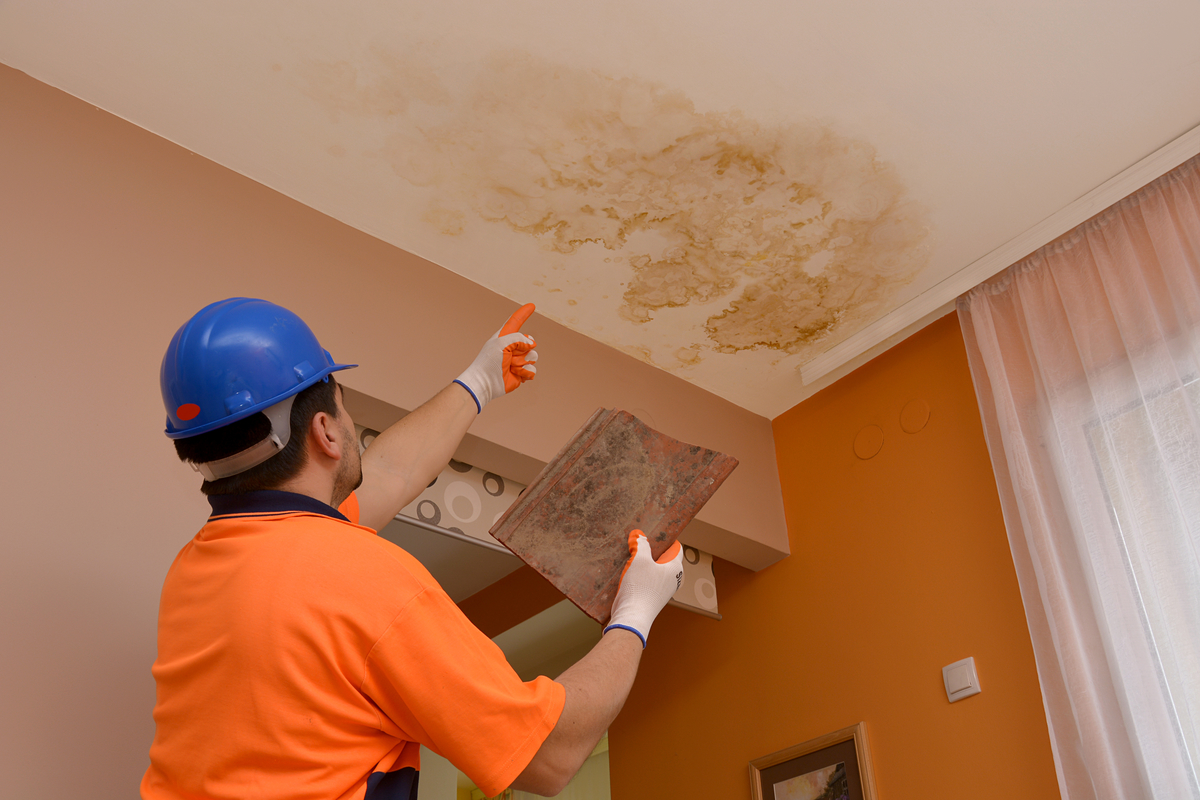The Residential Common Typical Factors of Water Leaks: Detailed Examination
The Residential Common Typical Factors of Water Leaks: Detailed Examination
Blog Article
Just about everyone is bound to have their own rationale involving How Fast Water Damage Can Ruin Your Home.

Leakages not only cause waste of water yet can also cause unnecessary damages to your home as well as promote unwanted organic growth. Regrettably, water leakages might go undetected since most of the pipework in our house is hidden. By looking as well as recognizing for daily circumstances that trigger leaks, you can safeguard your home from future leakages as well as unneeded damages. Today, we will take a look at 6 leak triggers that might be causing your pipes to leak.
Intruding origins
Many water leaks start outside the house rather than inside it. You might see wet spots or sinkholes in your yard, and that could imply that tree roots are invading water lines triggering water to seep out.
Rusty water systems
As time passes by, your plumbing system ages and also rust such as rust might start gnawing the pipes. This might be the cause of staining or warping on your pipes. This requires an inspection with your plumber quickly. If our plumbing system is old, think about changing the pipes given that they are at a greater threat of deterioration than the newer designs.
Defective Pipe Joints
The point at which your pipelines link is regularly the weakest web link in the waterline. Pipeline joints can wear away over time, resulting in water leakages. The bulk of pipe joints are not conveniently visible. If you have noisy pipes that make ticking or banging noises, especially when the hot water is turned on, your pipeline joints are possibly under a lot of pressure. It is recommended to have your plumber check your system once a year.
Instantaneous temperature level modifications.
Severe temperature changes in our pipes can trigger them to broaden and also acquire all of a sudden. This expansion and contraction might trigger splits in the pipes, particularly if the temperature are listed below freezing.
Poor Water Connectors
At times, a leakage can be caused by loosened pipes as well as pipes that provide your home appliances. In instance of a water connections leak, you may discover water running straight from the supply line or puddles around your appliances.
Obstructed Drains
Blocked drains pipes may be frustrating as well as inconveniencing, yet they can sometimes wind up triggering an overflow resulting in break pipes. Keep getting rid of any type of materials that may decrease your drains that might obstruct them to prevent such aggravations.
All the above are root causes of leaks yet not all water leakages arise from plumbing leaks; some leakages could come from roofing system leaks. All leaks should be repaired instantly to prevent water damages.
Leakages not just trigger waste of water however can additionally trigger unnecessary damages to your home as well as promote unwanted organic development. By looking as well as comprehending for day-to-day situations that trigger leaks, you can safeguard your house from future leakages as well as unneeded damages. Today, we will look at six leak causes that may be triggering your pipes to leak.
At times, a leak can be triggered by loosened pipes and also pipes that supply your home appliances. In situation of a water links leakage, you may see water running straight from the supply line or pools around your appliances.
How To Check For Water Leak In Your Home
How To Check for Leaks
The average household's leaks can account for nearly 10,000 gallons of water wasted every year and ten percent of homes have leaks that waste 90 gallons or more per day. Common types of leaks found in the home are worn toilet flappers, dripping faucets, and other leaking valves. These types of leaks are often easy to fix, requiring only a few tools and hardware that can pay for themselves in water savings. Fixing easily corrected household water leaks can save homeowners about 10 percent on their water bills.
To check for leaks in your home, you first need to determine whether you're wasting water and then identify the source of the leak. Here are some tips for finding leaks:
Take a look at your water usage during a colder month, such as January or February. If a family of four exceeds 12,000 gallons per month, there are serious leaks.
Check your water meter before and after a two-hour period when no water is being used. If the meter changes at all, you probably have a leak.
Identify toilet leaks by placing a drop of food coloring in the toilet tank. If any color shows up in the bowl after 10 minutes, you have a leak. (Be sure to flush immediately after the experiment to avoid staining the tank.)
Examine faucet gaskets and pipe fittings for any water on the outside of the pipe to check for surface leaks.
Undetected water leaks can happen without the home or business owner even realizing. If you suspect a water leak, but not able to find the source. It is time to contact a professional water leak detection service, The Leak Doctor.
How To Find a Water Leak In Your Home
https://www.leakdoctor.com/blog/How-To-Check-For-Water-Leak-In-Your-Home_AE197.html

Do you enjoy reading up on Most Common Causes of Leaky Pipes? Give a remark below. We will be interested to know your ideas about this write up. We are looking forward to see you back again later on. So long as you enjoyed reading our post please do not forget to share it. Thanks for your time. Don't hesitate to visit our site back soon.
Choose excellence in emergency plumbing. Report this page